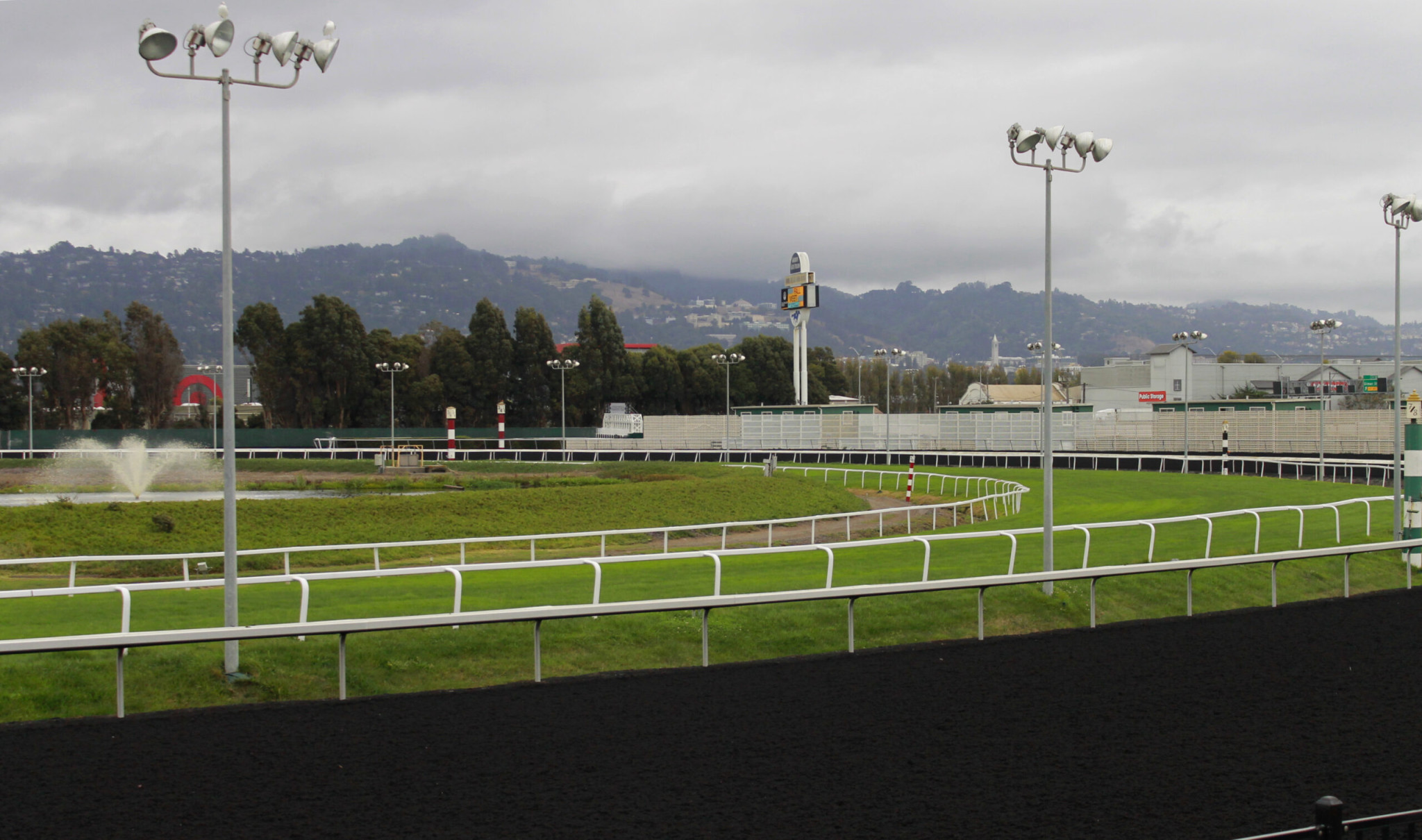“On a day like this, a Saturday, the entire area would have been filled. Every seat, if you can imagine that. … You could see it has changed a lot, and it’s kind of sad to see,” said Steve Fleming, who has been attending races at Golden Gate Fields, a horse racing track, ever since he was a student at Berkeley High School in 1973.
On July 16, 2023, Golden Gate Fields announced that it would be permanently shutting down operations at the end of its fall season in December. Recently, they released a statement saying that they would remain for an additional season and move the closing date to June 2024.
The push to close Golden Gate Fields came largely from activists advocating for the ethical treatment of the horses that reside there. “The horses are confined in their 12-by-12 stalls for basically 23 hours a day, and when they come out of their stalls they are never untethered,” said Samantha Faye, the lead organizer for Stop Blood Sports, an animal rights activism organization based in the Bay Area, which played a large role in the shutdown of Golden Gate Fields.
According to Faye, horse racing is inherently dangerous to the horses and there is no way to safely conduct the sport. “In my entire career of 20 years of international competitions, I had only ever seen one horse die. Then we have 5 horses dying in a week at a race track,” she said. “There simply is absolutely no way to have an animal run as fast as you can possibly make them go and then expect them to not be injured.”
Surprisingly, Faye has strong family ties to Golden Gate Fields. “My great-grandfather was mayor of Albany at the time that Golden Gate Fields was opening so he actually had the opening ceremony at Golden Gate Fields where he cut the ribbon,” Faye said.
In addition, Faye has worked with many horses from Golden Gate Fields throughout her life. “I grew up riding horses and I grew up training horses that had actually been sold from Golden Gate Fields. They would come into a training program at our barn and we would train them … and then we would sell them,” said Faye.
This background has given her a unique perspective on the treatment of horses in the racing industry and insight into the standards that horse owners should be held to. “Growing up riding horses … I can tell you with certainty that there is literally no other discipline, no other sport, no other style of riding where horses are killed even a quarter as often.”
Stop Blood Sports plans to continue to shut down race tracks around the country, and help other organizations to work toward the same goal. They hope that they can learn from this success and use it to help other organizations not make the same mistakes and have the delays they did.
While animal activists are undoubtedly very happy with the closure of Golden Gate Fields, many regular attendees feel differently and see repercussions that could cause issues in the future. “I feel very sad,” said Don Harnett, an attendee at the fall meet who has been coming to Golden Gate Fields since 1976. “I feel sad for all of the employees here and I feel sad for the horses too,” he said. “I wonder if the whole West Coast will be affected by where all the horses are going to go and the trainers and employees.”
The property’s future use has not yet been announced, which some think is hopeful. “I hope they turn it into something a lot more people will enjoy,” expressed Flemming.
Golden Gate Fields has been in operation since 1941, and many of its patrons have been attending races there for decades. “I had a lot of memories from Golden Gate Fields,” Fleming said. “But it is also kind of inevitable. It is a sign of the times how few people are here today.”





